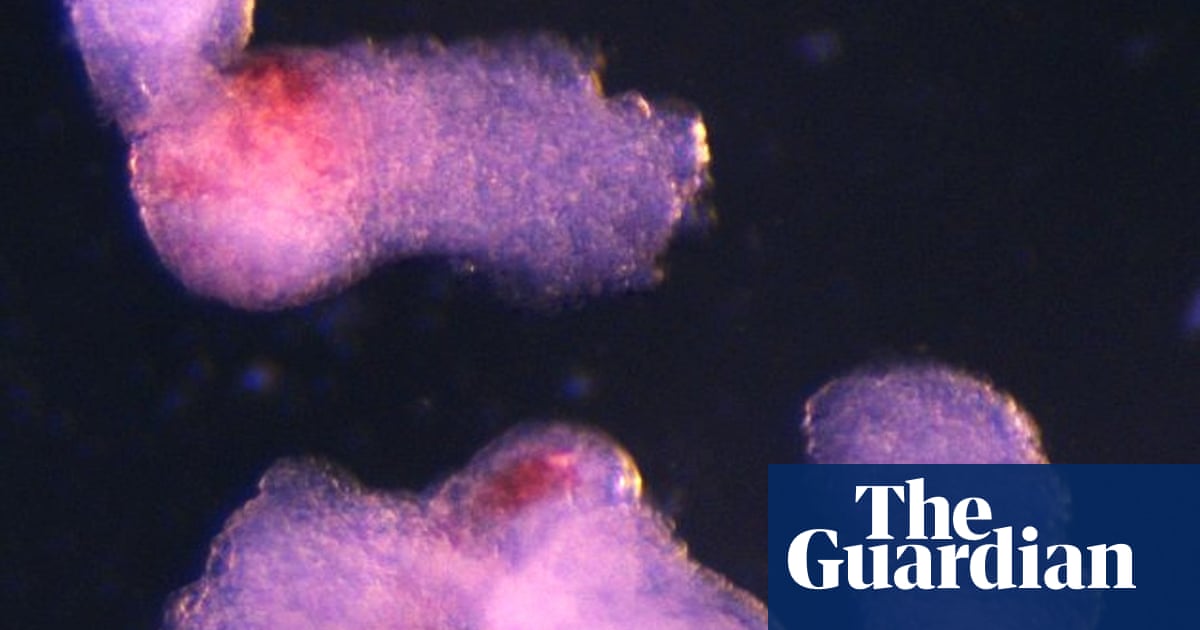The US Department of Health and Human Services (HHS) on Sunday reported the first human case in the US of travel-associated New World screwworm, a flesh-eating parasite, from an outbreak-affected country.
The case, investigated by the Maryland department of health and the US Centers for Disease Control and Prevention (CDC), was confirmed by the CDC as New World screwworm on 4 August – and involved a patient who returned from travel to El Salvador, an HHS spokesperson, Andrew G Nixon, said in an email to Reuters.
Earlier, Reuters reported that beef industry sources said last week that the CDC had confirmed a case of New World screwworm in a person in Maryland who had traveled to the US from Guatemala.
Nixon did not address the discrepancy on the source of the human case.
“The risk to public health in the United States from this introduction is very low,” he said.
The US government has not confirmed any cases in animals this year.
The differing accounts from the US government and industry sources on the human case are likely to further rattle an industry of cattle ranchers, beef producers and livestock traders already on high alert for potential US infestations as screwworm has moved northward from Central America and southern Mexico.
The government’s confirmation of a screwworm case comes just over a week after US Department of Agriculture (USDA) secretary, Brooke Rollins, traveled to Texas to announce plans to build a sterile fly facility there as part of efforts to combat the pest.
The USDA has estimated a screwworm outbreak could cost the economy in Texas, the biggest cattle-producing US state, about $1.8bn in livestock deaths, labor costs and medication expenses.
An executive of the industry group Beef Alliance sent emails last week to about two dozen people in the livestock and beef sectors, informing them that the CDC had confirmed a human case of screwworm in Maryland in a person who had traveled to the US from Guatemala, according to a source, who asked not to be identified, and who shared the contents of the emails with Reuters.
Beth Thompson, South Dakota’s state veterinarian, told Reuters on Sunday that she was notified of a human case in Maryland within the last week by a person with direct knowledge of it.
The CDC deferred questions to Maryland on a call with state animal health officials, Thompson said.
“We found out via other routes and then had to go to CDC to tell us what was going on,” she said. “They weren’t forthcoming at all. They turned it back over to the state to confirm anything that had happened or what had been found in this traveler.“
Another source said that state veterinarians had learned about a human case in Maryland during a call last week with the CDC. A Maryland state government official also confirmed a case.
A spokesperson for the Maryland department of health did not immediately respond to requests for comment.
Screwworms are parasitic flies whose females lay eggs in wounds on any warm-blooded animal. Once the eggs hatch, hundreds of screwworm larvae use their sharp mouths to burrow through living flesh, eventually killing their host if left untreated.
The maggots’ feeding is similar to a screw being driven into wood, giving the pests their name. Screwworms can be devastating in cattle and wildlife, and rarely infest humans, though an infestation in either an animal or a person can be fatal.
Treatment is onerous, and involves removing hundreds of larvae and thoroughly disinfecting wounds. But infestations are typically survivable if treated early enough.
The emails from the Beef Alliance executive said that due to patient privacy laws, there were no other details available about the positive human case of screwworm. The person was treated and prevention measures were implemented in the state, the email said.
A livestock economist at Texas A&M University was asked to prepare a report for Rollins on the impacts to industry of the border closure to Mexican cattle, according to the emails, a measure that has largely been in effect since November to prevent the arrival of screwworm to the United States.
The CDC was required to report the positive New World screwworm case to both Maryland health officials and the Maryland state veterinarian, one of the emails said, adding that the CDC also notified other agriculture stakeholders.
“We remain hopeful that, since awareness is currently limited to industry representatives and state veterinarians, the likelihood of a positive case being leaked is low, minimizing market impact,” the beef industry executive wrote.
A representative for the Beef Alliance did not respond to requests for comment.
Source link


